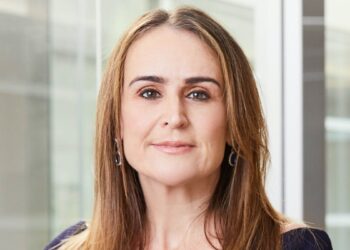According to the research, Generation X, those born between 1965 and 1979, is set to be the wealthiest ever to have lived thanks to the transfer of wealth from Baby Boomer parents.
It is estimated this generation will inherit $3.5 trillion from their parents over the next 20 years.
The report said the net wealth of Baby Boomers between the age of 55 to 64 is 4.2 times their Gen Y children aged 25 to 34.
The households of Boomers currently own a combined $4.5 trillion. Over the next two decades, while some in this age group will still be increasing their net worth, others will be spending theirs down.
It is estimated that over these next two decade, at least $3 trillion of this, much of it in property, will be passed on to their children. Therefore, the decades ahead will see the biggest intergenerational wealth transfer in Australia’s history and many of the younger generations will be the main beneficiaries.
“I think we are already seeing a trend of parents assisting the next generation with buying a home – and often super is the source of the funds because that’s where the money is,” said Meg Heffron, director of Heffron.
“We’ve also seen a few clients in their 70–80s help their kids in their 40–50s top up super because often they’ve already got a home.
“In a few cases this has been done by including the ‘children’ in their parents’ SMSF so in effect the money only temporarily leaves the SMSF – it’s paid out, given to the children who recontribute it.”
Ms Heffron said the drivers of this are firstly that the children won’t be able to tip large amounts into their own super accounts later once they are financially ready to, so the parents assist them by effectively giving them part of their inheritance early but in a way allowing them to get the great tax benefits of super.
There is also concern about death taxes as the parents don’t want to die with large amounts in super.
“I think the whole discussion around the proposed tax for people with more than $3 million perhaps masked the bigger issue that death taxes will take a huge chunk out of inheritances if Baby Boomers don’t withdraw their super before dying and their adult children inherit,” she said.
“We’ve now had 16 years of no compulsory cashing and six years where people with large balances couldn’t convert 100 per cent to pension phase because of the transfer balance cap.
“That’s resulted in unprecedented amounts being left to accumulate in super – which will mean death tax amounts in future are enormous.”
Craig Day, head of technical services at Colonial First State, said there are pros and cons of restructuring an SMSF to include adult children.
“With an SMSF and parents losing capacity there does seem to be some potential for serious fights over death benefits being paid,” he said.
“Depending on who ends up controlling the fund they have a lot of power.”
He said when the government allowed an increase to six members in an SMSF it was thought it would be a less popular structure, but the number of six-member funds is increasing.
“Instead of a couple getting older and deciding to rollover their SMSF to a public fund some are now saying ‘why don’t we bring kids in and help them run the fund and take over control’,” he said.
“The membership of SMSFs is aging quite rapidly and as a result, we are getting more trustees that may have capacity issues or their desire to put effort into an SMSF is dwindling.
“With a six-member fund the parents may look to bring in the kids to help them with succession planning and to get the benefits of their own super being rolled into fund.
“It can have its advantages and disadvantages. Bringing the younger generation in can allow you to keep assets in the fund that you don’t want to sell.
“Large funds don’t want property so if it is an important family business asset, restructuring the SMSF to include the younger members could save that.
“Rolling over into a larger fund could also mean the members lose concession cards or social security benefits.
“Then there is the tax issues around winding up pensions and allocating reserves out to members and TBC issues to contend with that you wouldn’t have to face if you stayed in SMSF and brought in kids to manage the fund.”
Mr Day said there would also be an increase in scale and subsequent reduction in costs and increase in cash flow if adult children are directing their contributions into the SMSF.
“It allows for an effective handover of control to the next generation.”


